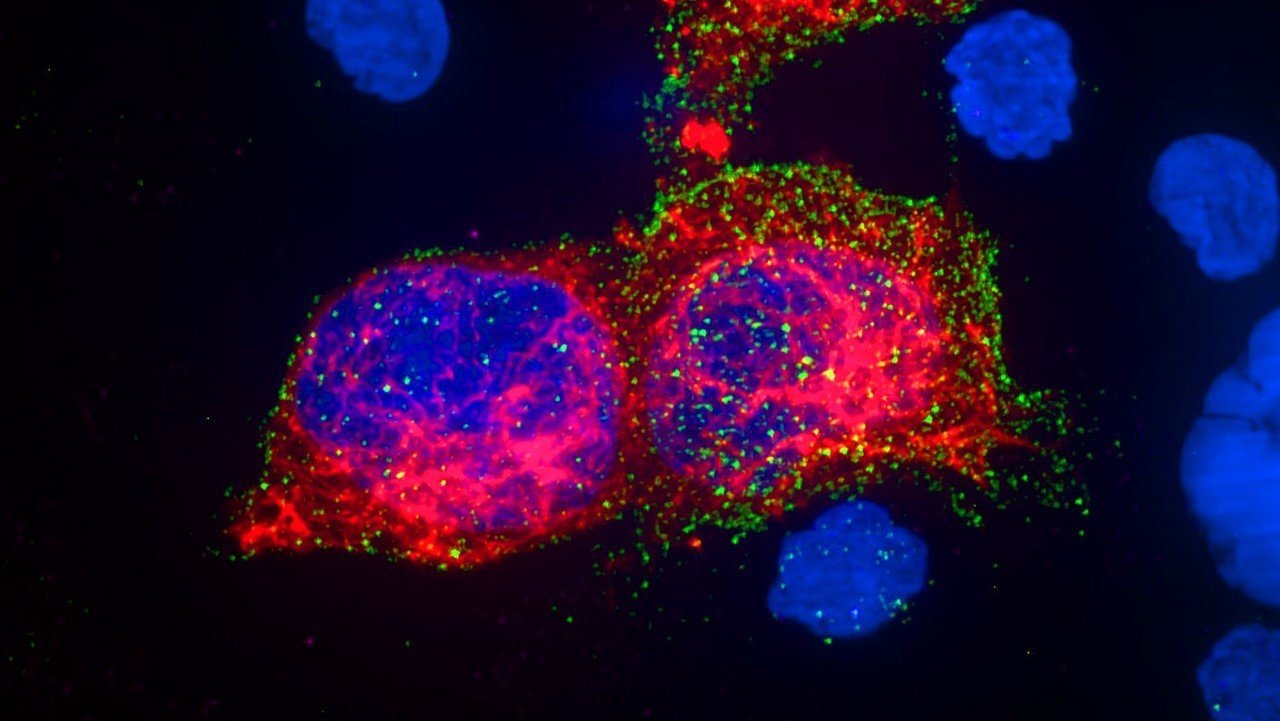
Giannakakou Lab
Targeting the Microtubule Cytoskeleton in Cancer Therapy
*The above illustration of the microtubule dimers and polymers adapted from Dr. Antonina Roll- Mecak
Our lab studies the biology of the microtubule cytoskeleton and the molecular mechanisms of action and resistance to drugs that target microtubules (e.g. taxanes) and are used in cancer chemotherapy. We use functional cellular and molecular biology assays coupled with high-resolution microscopy and live-cell imaging to decipher the molecular basis of clinical response and resistance to taxanes and other widely used microtubule inhibitors. Our focus is on interphase microtubule-mediated trafficking and signaling pathways that are critically involved in cancer progression and response to treatment. We have identified new roles for the microtubule cytoskeleton in the transport and activation of cancer-promoting transcription factors such as the tumor suppressor p53, the hypoxia-inducible factor 1a(HIF-1a) and most recently the androgen receptor (AR) and its splice variants in prostate cancer. We are also studying the molecular basis of drug resistance to microtubule-targeting drugs and the role of the cytoskeleton in the regulation of protein translation.To translate our preclinical work to the clinical setting, we have focused our efforts on isolation and molecular characterization of patient-derived circulating tumor cells (CTCs), which we use as a source of liquid biopsy to study the molecular basis and evolution of drug resistance. Our ultimate goal is to develop better-targeted therapies for the treatment of patients with cancer.
LNCap Cells stained for PSMA (green), cytokeratin (red) and DAPI (blue)
